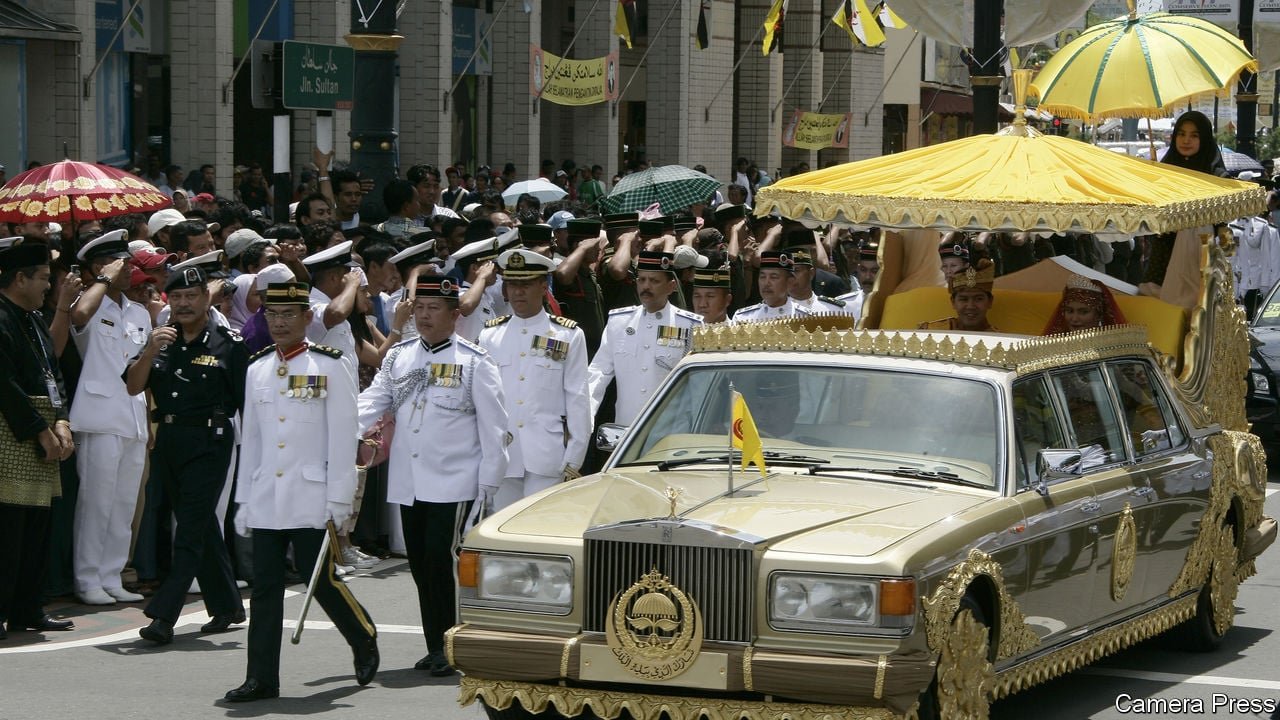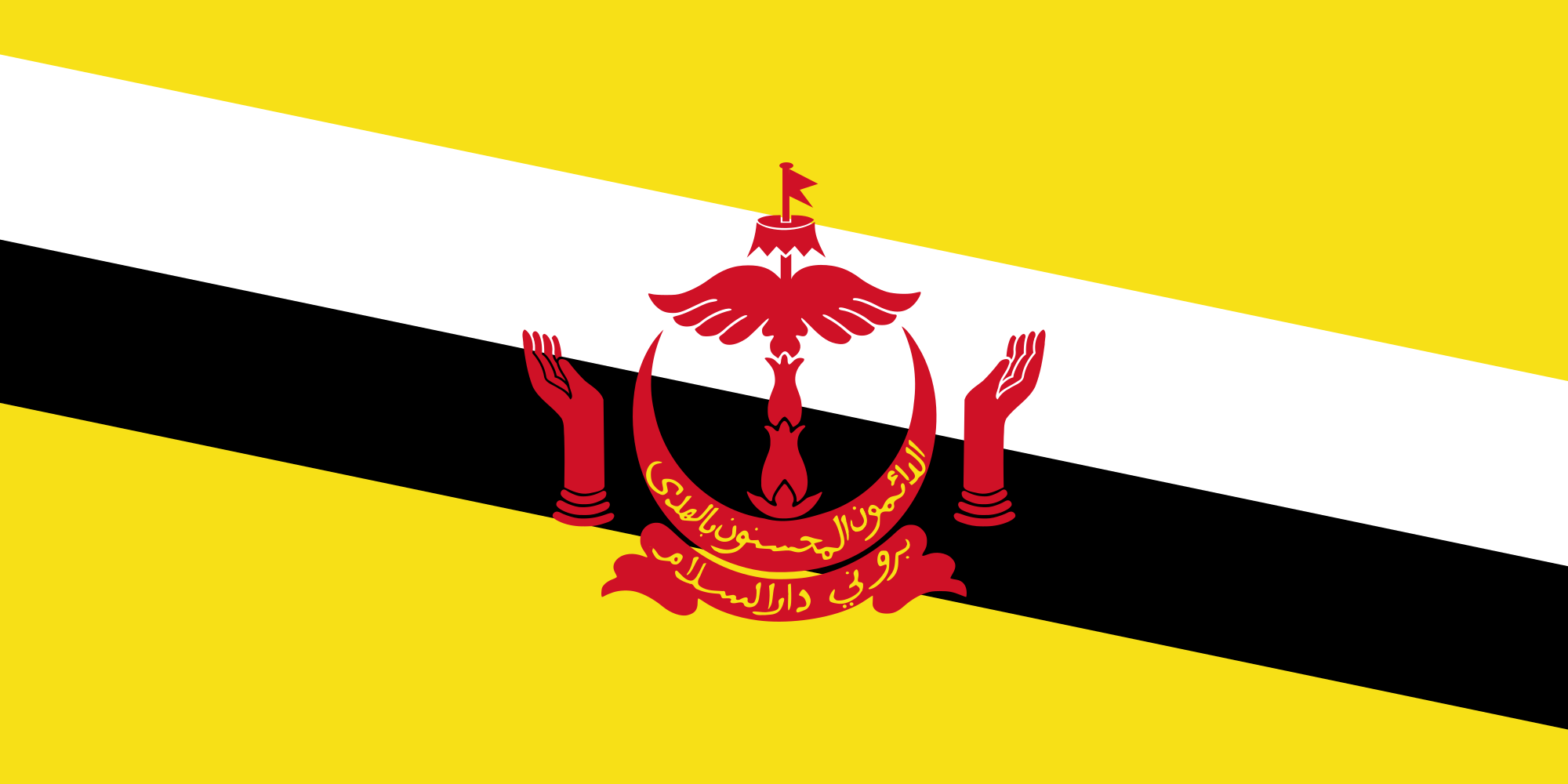
Brunei Darussalam - 40.91
120
The best country to live in if you’re male, Malay, and Muslim
Sharing the island of Borneo with Malaysia and Indonesia, Brunei has more in common with the petrostates of the Persian Gulf than it does with either of its island-mates. The country is extremely wealthy, with the vast majority of the country’s wealth derived from government-managed petroleum extraction. The government provides a great number of services to the people without paying taxes, including healthcare, education, and a housing subsidy, but also rules with an iron fist. Brunei is Southeast Asia’s only absolute monarchy and it is governed by Sharia law. The law strictly governs the lives of its citizens, especially Muslims. Non-Muslims face consistent discrimination and Brunei is distinctly unfriendly towards the LGBT. Brunei has one fo the lowest rates of traditional corruption in the world, though it can be argued that the Sultan’s consistent effort to enrich himself counts as corruption. Through the country’s oil wealth, Sultan Hassanal Bolkiah ibni Omar Ali Saifuddien III has amassed a record-setting car collection. However, Brunei’s unique way of life may not be sustainable. The country faces changing times and a finite oil resource while attempts to diversify the country’s economy have not been particularly successful. The future is uncertain for Brunei as the world moves forward, potentially leaving them behind.
Human Rights - 16
Brunei has functionally abolished the death penalty; the last execution was carried out in 1992. Homosexuality is punishable by death, though this law has never been enforced. Brunei employs corporal punishment for certain offenses. Caning is a mandatory punishment for certain offenses, including homosexuality, but it is prohibited for children, the elderly, and those ruled unfit by a doctor. Canings are conducted in the presence of a doctor, who can end the caning at any time for medical reasons. “Spiritual rehabilitation” is mandatory for all Muslim inmates in Bruneian prisons. Letters to the Sultan or the Ombudsman are the only way to file a human rights complaint and there is no formal recourse for human rights violations committed by the government. The government maintains an extensive surveillance algorithm monitoring emails and chat messages. The algorithm is intended to report cases of “Suspected Religious Extremism” to the authorities for manual review. The government also has a network of paid informants to report people espousing religious extremism in public. Challenging the authority of the royal family is also illegal under a provision that also bans calling for revolution. Internet Service Providers and social media self-censor content but the government does not officially censor online content. All public performances and demonstrations must be approved by the Censorship Board. The Censorship Board approves most if not all public performances and demonstrations but is known to restrict Chinese New Year celebrations to Chinese temples and churches. The law does not formally protect freedom of speech, expression, association, religion, assembly, or the press. Homosexuality is punishable by death but this law goes unenforced. Abortion is legal to save the woman’s life. Brunei received a five-point penalty for an unenforced death penalty for homosexuality. Brunei received a five-point penalty for legal torture.
Democracy - 1
Brunei is an absolute monarchy.
Freedom - 12
Bruneian law does not formally protect freedom of speech, expression, association, religion, assembly, or the press. The government has an unenforced law allowing them to shut down any media outlet for any reason and ban foreign outlets from operating in the country. All local newspapers must register with the government. Foreign and local media are generally allowed to operate freely but the government owns and censors all locally-owned television news stations. The government maintains an extensive surveillance algorithm monitoring emails and chat messages. The algorithm is intended to report cases of “Suspected Religious Extremism” to the authorities for manual review. The government also maintains a network of paid informants to report people espousing religious extremism in public. Challenging the authority of the royal family is illegal, including speech calling for revolution. All public performances and demonstrations must be approved by the Censorship Board, which approves most if not all public performances and demonstrations. However, the board is known to restrict Chinese New Year celebrations to Chinese temples and churches. Marriage between Muslims and non-Muslims is illegal. Muslims also require permission from a religious authority to convert to other faiths. Christians and Buddhists are not allowed to have religious celebrations in public outside of approved areas. Alcohol is illegal for sale in Brunei. Non-Muslims over the age of eighteen can import strictly regulated quantities of alcohol upon entering the country but cannot drink in public. Brunei has an unenforced mandatory death sentence for drug smuggling. Drug dealers can expect sentences in excess of forty years. Brunei has a total ban on all firearms. Brunei received a five-point penalty for a total ban on alcohol.
Economy - 85
Health - 95
Brunei has a life expectancy of 76 years and an infant mortality rate of 0.96%. 8.7% of Bruneians are obese and 0.42% are malnourished. Brunei’s universal healthcare system is one of the strongest in the world. All Bruneians have access to clean, running water and wastewater and plumbing services are provided free to all citizens.
Corruption - 93
Brunei has very little traditional corruption, large in part due to major anti-corruption efforts by the government. Corruption charges can carry prison sentences in excess of ten years. Petty corruption is occasional in land border crossings with Malaysia.
Competency - 82
The government is failing to repeal unenforced laws. The government lacks an adequate method to process human rights claims.
Future - 29
Brunei shows no signs of opening up democratically or liberalizing any of its policies any time soon. Brunei is currently struggling to diversify its petroleum economy in the face of changing times and a finite oil reserve.
Actions Abroad - 52
Brunei maintains diplomatic relations with North Korea and Prince Mohamed Bolkiah was personally invited to North Korea by Kim Jong-Un. Brunei’s claims to parts of the South China Sea conflict with China, Malaysia, the Philippines, Taiwan, and Viet Nam. However, Brunei’s claims are relatively reasonable compared to its neighbors. Brunei is a tax haven. Brunei received a ten-point penalty for its tax haven status.
No Bruneians live below the international poverty line and 5% live below the national poverty line. 8.27% of Bruneians are unemployed. Brunei has a high economic disparity. Brunei has no minimum wage but labor unions wield significant power and workers are expected to unionize. Brunei has a very strong universal healthcare system. For an unknown reason, all consultations cost one Bruneian dollar ($0.74 USD) for citizens. Non-citizens pay full price for care and employers are expected to provide for migrant workers. The Bruneian economy grew 1.1% in 2020 and 3.9% in 2019. The Bruneian economy is heavily reliant on oil and Brunei’s attempts to develop a tourism economy have been met with middling success.
